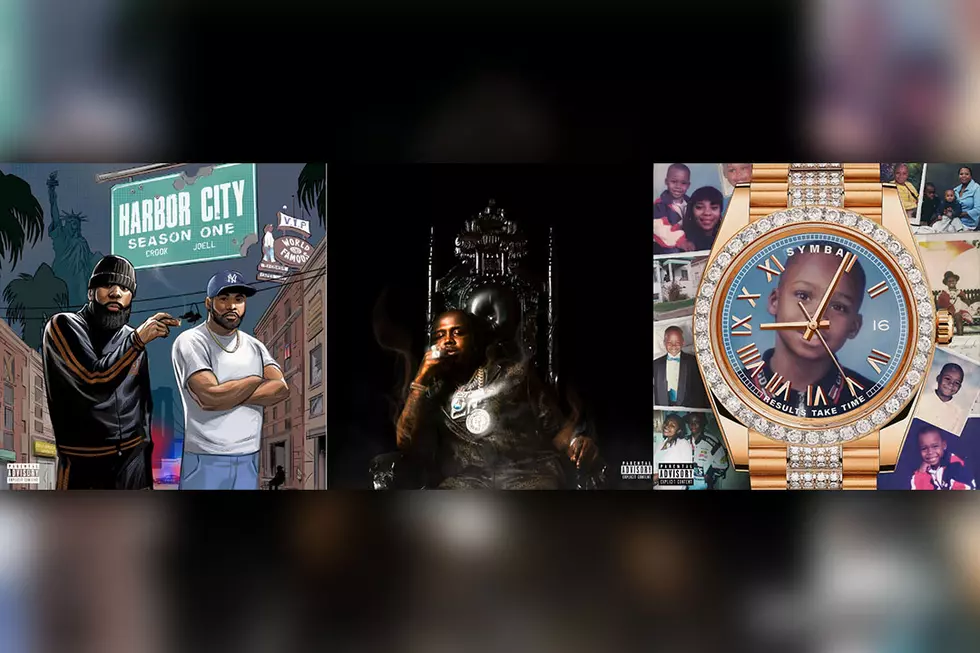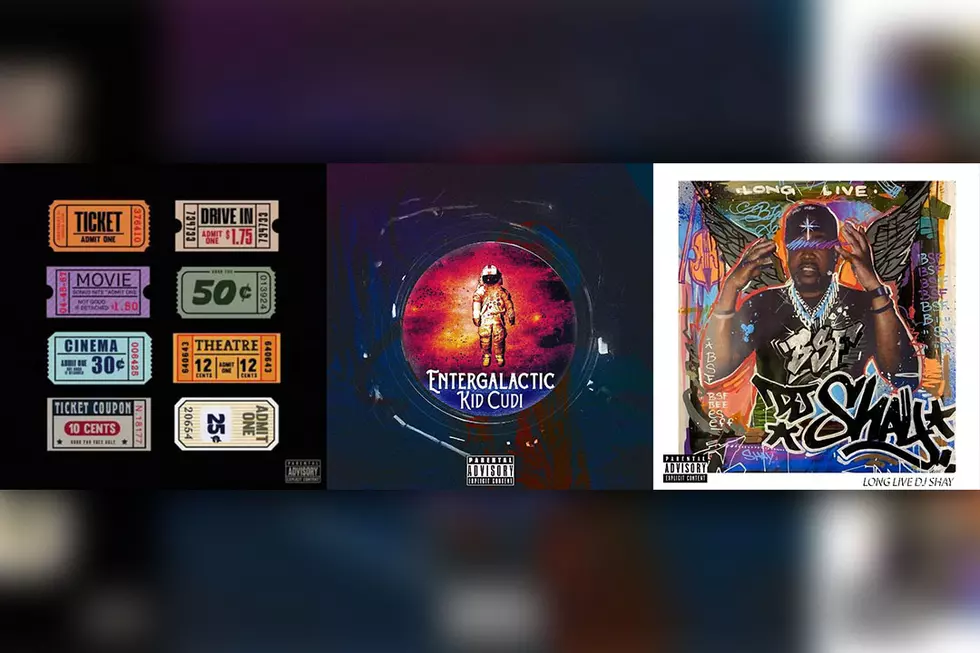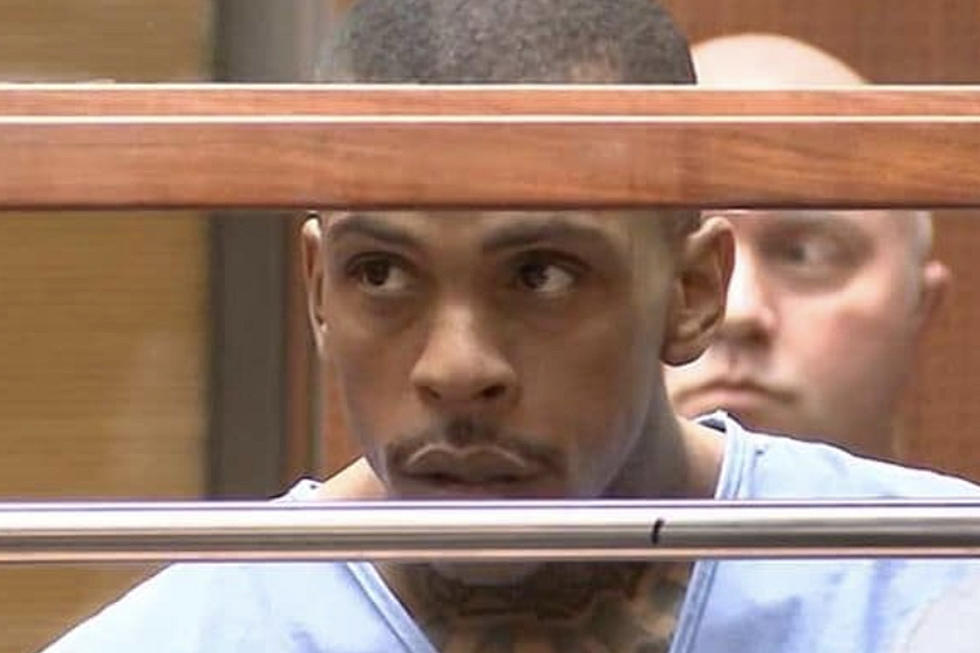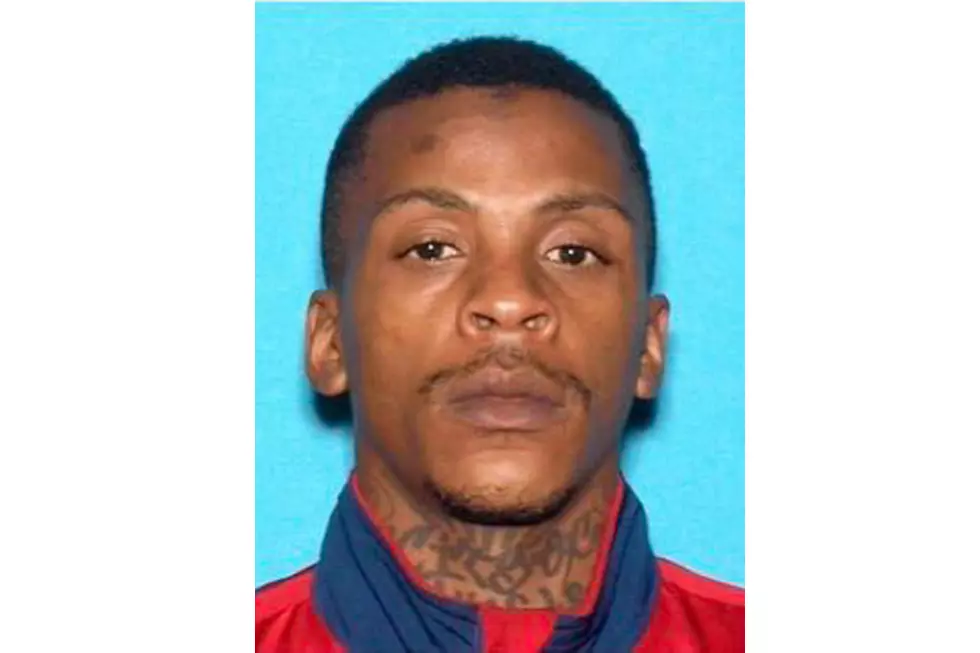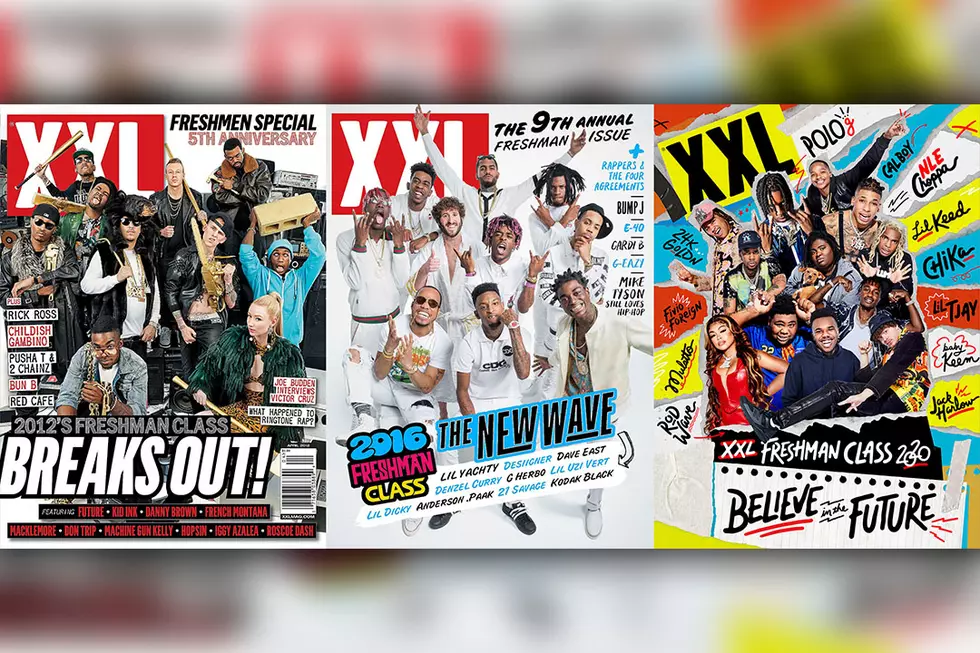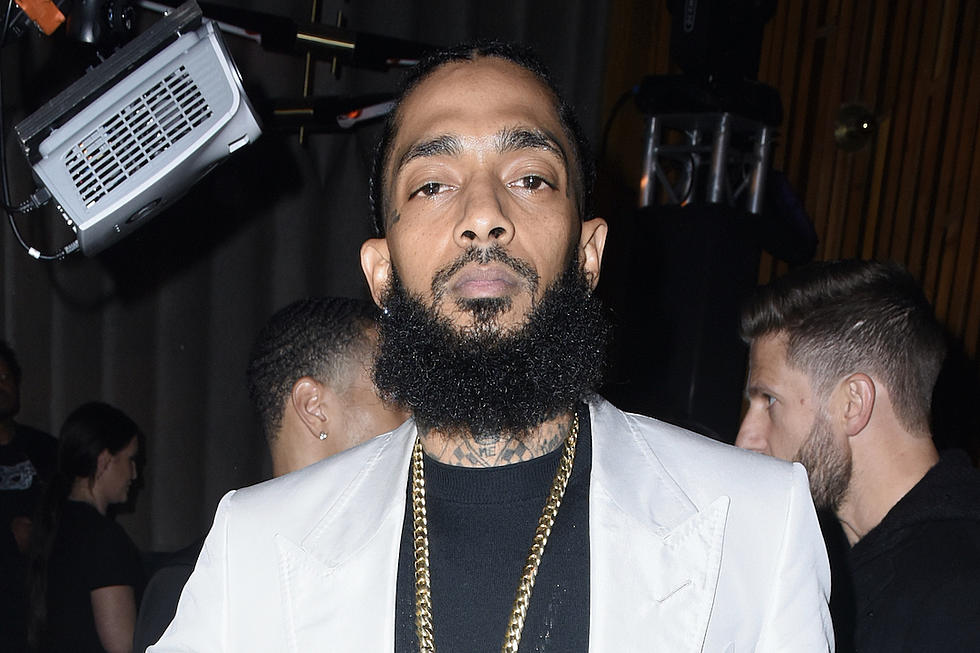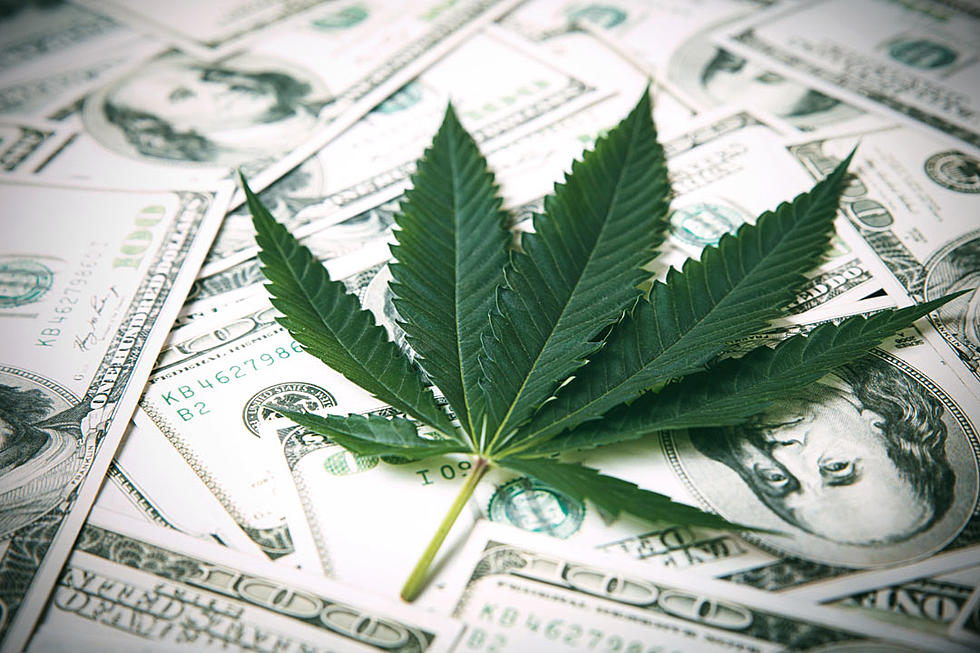
Rappers Getting Paid From the Cannabis Boom Is More Than Just a Side Hustle, It’s a Matter of Social Justice
Big Business
Hip-hop artists getting paid from the cannabis boom is more than just a side hustle. It's a matter of social justice.
Words: Rob Kenner
Editor’s Note: This story originally appeared in the Spring 2021 issue of XXL Magazine, coming soon.
"Puffin’ on buddah, sess or skunk/Gives a kick like a football punt/So much money has been spunt/Much, much more than Donald Trump’s/I hope my boom spot doesn’t get bumped”—Diamond D & The Psychotic Neurotics, “Stunts, Blunts & Hip Hop” (1992)
“I’m sellin’ weed in the open, bringin’ folks home from the feds,” Jay-Z declares on “What It Feels Like,” his epic collab with the late great Nipsey Hussle, off Judas and the Black Messiah: The Inspired Album. Channeling Chairman Fred Hampton, Jay evokes the spirit of the award-winning film’s real-life hero, a 21-year-old Black Panther leader who was assassinated in Chicago on Dec. 4, 1969, the same day Shawn Carter was born in Brooklyn. “I know that the payback gon’ be mean,” he adds, “I’m savin’ all my little bread.”
Coming from the first hip-hop artist to become a billionaire, that “little bread” is larger than your average loaf. And, Hov’s putting some of his bread on the table to help Black entrepreneurs build generational wealth and undo the damage done by a decades-long drug war that amounted to a war on communities of color.
“We were the ones most negatively affected by the war on drugs, and America has turned around and created a business from it that’s worth billions,” Jay-Z told the Wall Street Journal this past January. “I wanted to do something in a real, concrete way, where I do my part.” With that, he announced the launch of a Social Equity Ventures Fund, in partnership with his own cannabis start-up, The Parent Company, to support minority-owned cannabis start-ups. Investors in the $10 million fund reportedly include Roc Nation all-stars Meek Mill, DJ Khaled and Rihanna. Jay-Z’s strategic entry into the cannabis space also includes his own upscale herb brand called Monogram, featuring four strains of small-batch kush in hand-rolled spliffs that sell for up to $50 each.
As usual, Hov’s timing is impeccable. With U.S. cannabis sales surging by 67 percent throughout the COVID-19 pandemic lockdown of 2020, America’s legal marijuana market is estimated to be worth $61 billion at the moment and heading all the way up. “It’s like the gold rush,” rapper-turned-cannabis mogul B-Real of Cypress Hill explains. “Everybody and their mama is gonna come and stake a claim. The only thing you can do is to stay ahead.”
Born almost six months after Shawn Carter, the L.A. rapper, who grew up Louis Mario Freese, has a head start on Hov when it comes to cannabis culture. “Whether it was cultivating or pushing new brands...we been in it,” B-Real says. “And before that was a thing, we were advocates and activists for the last 30 years. So, when it came time to transition from music to cannabis, it was fairly easy.”
B-Real admits there have been “bumps in the road” as he built a self-sufficient herb business developing brands based on Cypress Hill hits. The vertically integrated company sells its own Insane products via a chain of Dr. Greenthumb stores, the seventh of which will soon open in San Diego. B-Real says the biggest bump was navigating the transition “from a Black market situation into a White market situation... Getting everything compliant and up to regulation.”
Rap stars have definite advantages when it comes to navigating that complex transition. “I’m in a privileged position,” Nipsey Hussle said during the 2018 Victory Lap promo run. “I have a celebrity factor that I benefit from."
"I’ve got a built-in marketing mechanism... So, I didn’t have the challenges that somebody that’s just a hustler and was moving they packs would have. It’s like a liquor license almost. There’s a limited amount of licenses that they gave out, and if you don’t have a partner with one, and you can’t get one yourself, you’re boxed out of selling liquor. Same with the weed.”
Two years after Hussle’s passing, his older brother Blacc Sam is making sure the marathon continues on many fronts, part of which is maintaining The Marathon Cultivation, which serves strains like Shark Bite, Cotton Candy and Marathon OG at dispensaries all over Cali.
“There’s so much space for so many people to win,” says DJ Saul, CEO of Khalifa Kush, which started as Wiz Khalifa’s personal use strain and launched as a legal business in 2016. “That’s why when we see new celebrities jump into the space, hip-hop or not, nothing is overly concerning or threatening. There’s gonna be so many opportunities for friendly competitors, and even room for collaboration as we grow.”
This economic boom was made possible by the recent changes in cannabis laws and the public’s general perception on marijuana. In February of 2021, Virginia became the 16th U.S. state to legalize recreational marijuana. Nevertheless, cannabis remains illegal on the federal level, and people—especially people of color—are still getting locked up at an alarming rate. According to the latest FBI data, more people were arrested for cannabis in 2019 than for all violent crimes combined. Black people are much more likely to be arrested for marijuana than White people—an average of 3.6 times more likely nationwide, and in some states, more than nine times more likely.
Today, Khalifa Kush is available for sale in Nevada, Arizona and Utah via a partnership with Tryke, which moves the product efficiently from seed to sale via its network of Reef dispensaries. Plans for expansion are in the works. “KK is predominantly a flower and pre-roll brand,” says Saul. “We have a full line of vapes, edibles and concentrates—shatter, butter, crumble, sauce and even syrup.” Wiz is hands on when selecting new strains, which Saul refers to as “genetics,” and designs for merch capsule collections.
Saul says Wiz, who’s admitted to being arrested for weed 21 times, takes the social equity issue very seriously. “There’s memes about it,” he says. “And not in a ‘ha, ha’ way. Of people just getting released after a long sentence of being incarcerated for anything marijuana-related, coming home and seeing 50 billboards for White millennials smoking joints. How fucked up is that?”
True-school aficionados swear up and down that there are five elements of hip-hop—MCing, DJing, breaking, graff and beatboxing. But since the earliest days of the culture, getting “buddah blessed” has been damn near a holy sacrament. The psychoactive and medicinal properties of cannabis—not to mention the proceeds of underground herb hustling—have fueled countless dope rhymes, creative endeavors and business ventures.
The DJ who blew young Russell Simmons’ mind and inspired him to drop out of college and form Rush Productions in the late 1970s was named Eddie Cheeba. Even after Dr. Dre proclaimed in 1988, “I don’t smoke weed or sess ’cause it’s gonna give a brother brain damage” on N.W.A’s “Express Yourself,” he came back four years later in 1992, and served up a masterpiece called The Chronic.
Around that same time, Staten Island’s own Dennis Coles was steady building with Robert Diggs and his cohorts in the Wu-Tang Clan. Ghostface Killah and RZA, respectively, can be heard at the top of the Wu’s 1993 classic “Can It Be All So Simple” sharing a blunt during a thunderstorm and reminiscing on the days when shit was all smooth and calm. “Smoke that bone, nigga,” Ghostface blurts, interrupting RZA’s reverie.
Ghost Deini’s love affair with the holy herb stretches back to the mid-1980s. “The first time that I ever hit weed? I was probably like 15 years old,” explains Ghost. “I hit it and got mad fuckin’ paranoid... I had the munchies and shit. They had these little 10 cent cookies... in the store. Little chocolate chip joints. I remember I just kept chewin’ the shit outta these muthafuckas.” Buggin’ out with his mans and ’em, he found himself smiling for no particular reason, and later noticed that his cheek muscles were sore—but somehow he didn’t mind.
“Back in those days, you used to hide and smoke and shit like that,” Ghost recalls. “You might be outside, probably play the benches and all the street corners and shit.” He had good reason to hide—from the mid-1980s to the mid-1990s, Black and Latino youth in NYC were being arrested for cannabis at a much higher rate than White youth, accounting for 86 percent of all such arrests despite making up just over half of the city’s population—and despite the fact that a higher percentage of White youth actually smoked pot, according to government surveys.
“I don’t think a lot of people thought that weed would be legal one day,” Ghost admits of the trend. If anybody would have told him that one day he’d have his own line of Ghostface Killah high-grade pre-rolls for sale in dispensaries throughout California, he probably would have laughed and sparked another blunt. “I never knew that it would be a time when it’s like, You know what? You got your face on this package right here. This your shit... We about to get this money.”
Like most rappers, Ghost entered the industry by partnering with others to bring legal products to market. He describes his early forays in the cannabiz as a process of trial and error, much of which he attributes to a former partner. “Homeboy, he was just movin’ too fast and just doin’ shit,” says Ghost of his early dealings in the game. “We had a bad experience with our pens... they was explodin’ on muthafuckas... And don’t get me wrong, he coulda been meaning to do well, but I guess his connections, it wasn’t really that good. He did the Moon Rocks and all the other shit. Some people loved it, some people hated it.”
Ghost has since partnered with Bob “Dr. Bob” Baker, a master grower from Orange County with decades of experience and a deep commitment to homeopathic healing. After Dr. Bob’s CBD regimen helped in the healing process for one of the Clan’s management team members who had cancer, Ghost partnered with Dr. Bob’s company, Grandma Bakers, who are fully certified by the state of California.
“[The Ghostface Killah brand is] grown by people that have been growing for 45 years,” says Dr. Bob. “They’re part of the original hippies... Their father used to run around between the hippies and the Middle East bringing the hash back and forth. They make all their own nutrients. So, what better fit for Ghost to represent clean products that are not hurting the people? It’s about saving lives and not hurting people. A lot of companies nowadays, they only want the money.”
In November of 2019, street teams wearing “More Life” jackets distributed bouquets of flowers around downtown Toronto to tease the launch of Drake’s More Life Growth Company. Backed by Ontario-based Canopy Growth Corporation, the world’s largest cannabis firm, More Life will sell cannabis products and accessories, herbal teas, dried plants, rolling papers, pipes, vaporizers, apparel and footwear.
“The opportunity to partner with a world-class company like Canopy Growth on a global scale is really exciting,” Drake said in a statement on the endeavor. “The idea of being able to build something special in an industry that is ever growing has been inspiring. More Life and More Blessing.” In February of 2021, Canopy Growth filed the largest prospectus of any cannabis company in history, in a bid to raise $2 billion cash.
Such moves are much harder to pull off in America, where marijuana remains illegal on a federal level and banks are reluctant to accept deposits from cannabis companies. But as Meek Mill has noted, “Scared money don’t make no money.”
Back in 2019, Jay-Z joined Caliva, a vertically integrated seed-to-sale cannabis company with over 200 dispensaries across California, as chief brand strategist. There he began developing his own carefully curated brand, Monogram, in collaboration with Left Coast Ventures, the company behind Marley Natural and Mirayo by Santana, a cannabis brand backed by Carlos Santana.
In November of 2020, Subversive Capital Acquisition Corp snapped up Monogram and Caliva, forming a new multinational entity called The Parent Company, which raised $575 million on the Canadian Stock Exchange last summer. The Parent Company also became an exclusive partner with Roc Nation, opening the door for Roc clients like Rihanna and DJ Khaled to potentially roll out their own “joint ventures.”
“What I’m seeing right now, is sort of, I would say performative or cosmetic public relations moves,” says drug policy activist Shaleen Title, who views all the chatter about "social equity" in the cannabis industry with a healthy dose of skepticism. "I'm not aware of any arrangement...that's a successful model for a celebrity that's really creating systemic change in cannabis...really putting in the work to be funding real equitable policies or real uplifting of communities.”
While she credits Jay-Z for launching an investment fund, Title notes that $10 million will not go a long way even in one state. “I think it’s a promising start,” says Title. “It’s the type of support that’s needed. But, because the problems that are keeping Black entrepreneurs from succeeding are so complex and systemic, it’s going to take more than writing a check.”
A founding board member of the Minority Cannabis Business Association, Title also served on the Massachusetts Cannabis Control Commission as the “people’s weed watchdog” and cofounded THC Staffing, a recruiting firm focused on achieving racial equality. “What I would wanna see from them is in addition to making themselves the brand—which I’m somewhat skeptical of—wanting to see them create a pathway for people in the underground market to transition to the legal market,” she says.
The best ways to do that, says Title, are directly or through policy, by funding a ballot measure in a state that’s in the process of changing cannabis laws. “At this time, there’s a lot of opportunity for celebrities to really build a Black team around their brand, really fund entrepreneurs, and really hold companies accountable for what they’re doing and not just listen to what they’re saying,” she explains. Title cites the example of companies in Massachusetts who were suing to invalidate the state’s social equity program at the same moment they were posting Dr. Martin Luther King photos on Instagram.
One of the artists working to tip the scales in the other direction is Problem, whose new video “4 The Low” featuring Wiz Khalifa includes a CNN-style ticker crawling along the bottom of the screen sharing information about independent and minority-owned cannabis companies, and relevant factoids such as a reminder that only four percent of cannabis companies are minority owned and that 40,000 people are currently incarcerated for marijuana offenses, according to the Last Prisoner Project.
“It’s damn near like they wanna go and make the money before they let everybody out,” says Problem. “They wanna already make the money before they make it federal where everybody can do it. And it’s just not fair.” Although he doesn’t consider himself a “weed rapper” per se, the Compton rapper—who holds the distinction of having introduced Wiz and Snoop Dogg—grew up in the cannabis culture.
“Quiet as kept, my mom’s been growing weed around me since I was a child,” says Problem. He’s even “smoked with the best of ’em.” “All the way from Tommy Chong to Snoop to Wiz, everybody,” he reveals. “I’ve had the opportunity to smoke with some of the biggest smokers in the history of it. So, I think it was just a perfect fit. Let me take my try at it, see what I can do.” His new company, Martin Holdings, will include a diversified portfolio, including Benny’s pre-roll and flowers, Mammas Garden, a female-run company inspired by his mother, and Coffee and Kush—inspired by his mixtape of the same name—which markets limited-edition ceramic mugs with a pipe built into the handle.
“I was putting out a project called Coffee & Kush, and it was no way in hell I wasn’t gonna monetize off it,” Problem continues. “Like, word to Nip, there’s no point in fuckin’ blowin’ up a new situation and not bein’ prepared to monetize.” When he first began promoting his Coffee and Kush mugs, Problem claims that people looked at him like he was crazy. “And then I sold fuckin’ 5,000 mugs in a month.” Since then, he’s set up a partnership with the Canadian company Burb to enter the lucrative Canadian market and help them reach his fan base in Canada.
Upon entering the legal cannabis space, Problem was in for a rude awakening. “Man, we gotta start talkin’ about this shit ’cause it’s not fuckin’ fair,” he says. Problem thinks California’s social equity program pays lip service to leveling the playing field, but the amount of money necessary to get started is out of reach for most ex-offenders. “It’s like you’re just giving it to ’em to say you did it,” he says. “The taxes are crazy—it’s fuckin’ 30 percent taxes on all this shit... It’s all these weird loopholes that they’ve kinda created. So, if you don’t have at least $4 to $5 to $10 million to start, you can’t even play.” However, the reward pays off. “But I mean, you know, the juice is worth the squeeze.”
“The space is hard to get into, but the money is crazy,” says Mousa Hamdan, longtime manager of New Orleans rapper Curren$y and one of four partners in Andretti Cannabis Company. “Cali’s not giving out a lot more licenses, so you end up forced to partner with someone. Somebody’ll sell you a license for $4 or $5 million. Curren$y’s very dear to what he smokes,” Mousa notes that Andretti OG tests at 31 percent THC level, one of the strongest on the market. “That’s why I think it took us so long to develop the strain,” he continues. “Because until he found somethin’ that he felt worthy of his name... Like, he’s proud.” And growing herb is not like cranking out Starbucks lattes. “Even when we get a batch that may not come out as good, Curren$y be like, ‘Look, this is not good. Please don’t... I can’t send this to Rick Ross.’”
Mousa says the company—owned by himself, Curren$y and two growers—is starting to turn a profit. “Honestly, right now our demand is higher than our supply,” he says. “We’re actually just looking for more grows now ’cause we’re looking to grow more product.”
In a Triller video for “Gas,” Dizzy Wright spits bars while bopping amidst rows of pungent sensimilla stalks inside Redwood Cultivation, the company that grows his award-winning Dizzy OG strain. In years to come, the Las Vegas rapper hopes to open his own dispensary called Dizzy Land. “If I’m bein’ realistic—and this is me planting a seed... 2023, man, you will see that first Dizzy Wright dispensary,” he says of his personal goals for his cannibiz future. For now, he’s focused on branching out from Nevada and California to hotbeds like Denver, Seattle and Michigan, but due to federal prohibition—which the Biden and Harris administration has promised to change during the presidential campaign—he has to find growers for his strain in each state.
“I’m not necessarily money hungry when it comes to providing good weed,” says Dizzy. “That shit will come the way that it comes. But providing good weed is the biggest thing to me, especially if my name is on it.” Dizzy, who was so close to Bone Thugs-N-Harmony members Layzie Bone and Flesh-N-Bone growing up that he actually refers to them as his uncles, says he was inspired by the way they were able to “balance being a street nigga and being a spiritual being.”
Before he began rapping, Dizzy used to play basketball and didn’t actually smoke weed growing up. “I didn’t start smoking until my baby mama was pregnant with my daughter,” he says with a laugh. “I felt like I had just started kinda catching a buzz in my city, in Vegas. People were kinda taking me seriously. And then, now I’m havin’ a kid. And my baby mama wanted me to be a man, get a job and make her feel good. And I had to let her know, like, ‘Ah, I feel like I got something good goin’.’” A big homie schooled him to the therapeutic benefits of marijuana, which he says “helped me not give up on myself.”
In the few years he’s been involved, Dizzy says he’s seen the ganja game go up and down and up again. “I’ve seen ’em try to shut people out... the people who risked their lives—and they shouldn’t have had to risk their lives for it. I’ve seen those people try to get shoved out by people who just got money and wanna profit off of it, but don’t have a real love for it. But, it’s balance with everything and everything takes time,” he says.
In many ways, the growth of the legal marijuana business mirrors the evolution of hip-hop from underground culture to global mega-industry. Opening up new revenue streams and allowing hip-hop artists to grow their personal brands without selling out their values and principles is an example. The challenge will be reconciling the economic opportunity with the need to address the injustices of the drug war. Dizzy, for one, is hopeful for what is going to happen in the the future. “It’s like when a new team forms, it takes a while to get the right chemistry,” Dizzy continues. “From what I can see on my side, I do feel like I can see the chemistry kinda nudging to where it’s supposed to be.”
Everyone’s looking ahead.
Rob Kenner is a hip-hop journalist and author of The Marathon Don't Stop: The Life and Times of Nipsey Hussle.
Check out more from XXL’s Spring 2021 issue including our Cardi B cover story here.
See Cardi B's Photo Shoot in XXL Magazine's Spring 2021 Issue
More From 107-3 KISS-FM
